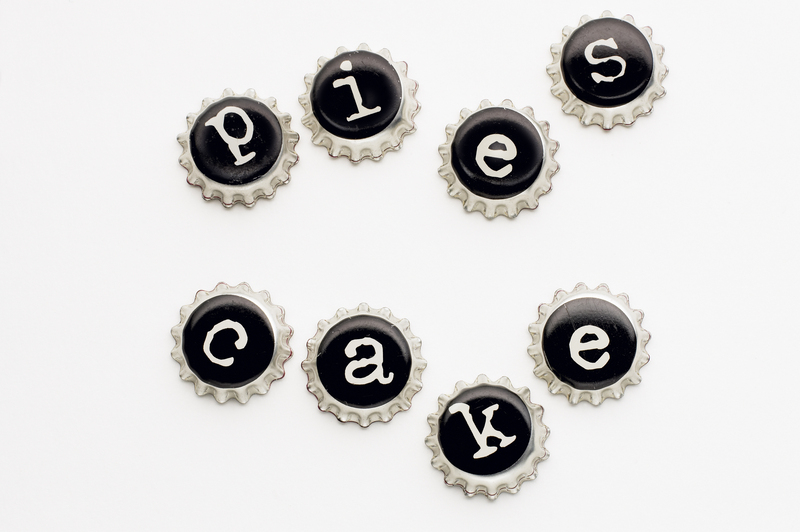Mastering Workplace Recycling: Tips and Tricks
Posted on 18/10/2025
Mastering Workplace Recycling: Tips and Tricks
Workplace recycling is not just a trend--it's a vital component of modern business sustainability initiatives. Mastering recycling in the office environment can greatly reduce ecological footprints, foster positive company culture, and improve your corporate reputation. This comprehensive guide delivers practical tips, industry best practices, and well-researched insights to help you efficiently implement and master recycling at work. Read on to discover how you can make a significant difference!
Why Mastering Office Recycling Matters
Most organizations generate a considerable amount of waste--ranging from paper and electronics to plastics and food. By actively promoting and practicing effective workplace recycling, you can:
- Reduce overall waste sent to landfills
- Save money by lowering disposal and procurement costs
- Contribute positively to environmental sustainability
- Build a positive brand image and attract eco-conscious clients and talent
- Boost employee satisfaction and teamwork
Mastering recycling at work is necessary for organizations committed to environmental stewardship and corporate social responsibility. But how do you create an effective system? Let's break it down step by step.

Setting Up a Successful Workplace Recycling Program
1. Assess Your Current Waste Stream
Begin by evaluating the types and quantities of waste your office produces. Conduct a waste audit to:
- Identify recyclable materials (e.g., paper, plastics, metals, electronics)
- Reveal non-recyclable contaminants
- Determine key areas where waste can be reduced or recycled
Engagement with facilities teams or local waste management services can provide valuable data for this process.
2. Set Clear Recycling Goals
Establish realistic and measurable objectives. For example, aim to reduce paper waste by 40% in six months or divert 75% of office refuse into recycling streams. Specific goals provide direction and allow for tracking progress over time.
3. Choose the Right Recycling Bins and Locations
Strategically place clearly labeled recycling bins throughout the workspace. Points to consider:
- Use color-coded bins for different materials (paper, plastics, metals, e-waste, and compost)
- Position bins near printers, kitchen areas, and high-traffic locations
- Add visual aids and signage--pictures are especially helpful for multilingual teams
Don't forget to provide sufficient trash bins alongside recycling containers to prevent contamination.
4. Educate and Engage Employees
Employee participation is key to mastering workplace recycling! Effective education might include:
- Hosting lunch-and-learn sessions or workshops
- Distributing educational emails, posters, and quick-reference guides
- Encouraging team challenges to foster friendly competition
- Recognizing or rewarding teams with top recycling rates
The more interactive and inclusive your communication, the better.
5. Partner with Local Recycling Services
Research partnerships with reliable waste haulers or recycling companies. Some firms offer tailored solutions for businesses, such as scheduled pickups, employee training, and recycling reporting for compliance needs. Choose partners that can process all types of materials generated in your office.
Proven Tips to Master Workplace Recycling
Tip 1: Reduce Paper Usage
Paper waste is a leading component of office trash. You can slash your paper footprint by:
- Transitioning to digital documentation
- Encouraging double-sided printing (set printers to duplex by default)
- Sharing files via cloud storage rather than hard copies
- Implementing electronic signatures
- Reusing scrap paper for notes or drafts
Tip 2: Learn What Can and Can't Be Recycled
Not everything is recyclable! Common contaminants include food-soiled containers, certain plastics, and Styrofoam. Provide staff with an easy-to-understand recycling chart that illustrates what should go in each bin. If in doubt, consult your local recycling guidelines.
Tip 3: Properly Manage E-Waste
Modern workplaces rely on electronics, but the disposal of old computers, printers, batteries, and phones can be tricky. Here's how to recycle e-waste effectively:
- Arrange annual or semi-annual e-waste collection drives
- Wipe all data securely before recycling electronic devices
- Work with certified e-cycling providers to ensure compliance and data protection
Tip 4: Introduce Composting
If your team has a lunchroom or kitchen, consider introducing organic waste bins for:
- Food scraps (fruits, vegetables, coffee grounds)
- Biodegradable packaging and utensils
- Paper towels and napkins (check local composting regulations)
Organic waste can become valuable compost, benefitting gardens or local farms.
Tip 5: Address Common Recycling Mistakes
Even well-meaning employees make mistakes. Here's how you can rectify common pitfalls:
- Gently remind staff to empty and rinse containers before recycling
- No plastic bags in recycling bins unless specifically allowed
- Encourage people to flatten boxes to save bin space
- Promote using dishware instead of disposable cups and plates
Advanced Strategies for Office Recycling Success
Leveraging Technology
Consider using digital tools to track recycling progress, send reminders, or organize pickup schedules. Mobile apps and cloud-based dashboards can offer real-time analytics to improve recycling efficiency and reporting.
Inviting Employee Feedback
Collect feedback through surveys or suggestion boxes to uncover issues or new ideas for your recycling program. Engaged employees are more likely to be vigilant and encourage others to participate.
Green Procurement Policies
Workplace recycling doesn't stop with waste--it starts with what you buy. Implement green procurement policies by:
- Purchasing recycled-content paper, toner, and office supplies
- Favoring products with minimal packaging or that are recyclable at end-of-life
- Choosing energy-efficient, durable office equipment
- Working with eco-oriented vendors and suppliers
Forming a Green Team
Creating a dedicated sustainability committee or green team can turbocharge your office recycling efforts. This team can:
- Monitor program performance and suggest improvements
- Serve as ambassadors for sustainability education
- Organize awareness events or office clean-ups
Reporting and Celebrating Achievements
Communicate successes--and areas for improvement--with the whole organization. Share annual recycling reports, recognize outstanding contributors, and celebrate important milestones to keep momentum high.
Pitfalls to Avoid in Mastering Workplace Recycling
- Neglecting proper signage: Leads to confusion and contamination
- Failing to maintain or empty recycling bins regularly
- Not updating practices when recycling rules change
- Overlooking less visible waste streams like ink cartridges or packaging materials
- Neglecting to include remote or hybrid employees in the program
Master Workplace Recycling for Remote and Hybrid Teams
With many employees working from home or in hybrid setups, don't let recycling efforts stop at the office. Encourage remote workers to:
- Follow local recycling and composting guidelines
- Minimize printing and use digital tools
- Recycle electronic waste responsibly at e-waste centers in their community
- Share successes and participate in companywide sustainability challenges virtually
Sustaining company values--no matter where your employees are located--strengthens commitment to eco-friendly practices organization-wide.
Frequently Asked Questions About Office Recycling
What are the biggest barriers to successful workplace recycling?
Lack of awareness, insufficient bin placement, unclear signage, and ongoing contamination are common challenges. Education and regular communication are crucial!
How can we keep recycling costs low?
Start small, use existing containers if possible, and partner with local municipalities or waste haulers for discounts. Over time, reducing waste will generate cost savings.
What are the best ways to motivate employees?
Make participation easy, run fun competitions (with prizes!), and offer public recognition. An engaged workforce is foundational to mastering recycling in the workplace.

Conclusion: Take the Lead in Workplace Recycling
Mastering recycling at the workplace is an ongoing journey that requires planning, creativity, and team commitment. By following these proven tips and tricks, you can minimize wastes, save resources, and help reverse environmental challenges. Start today--make sustainability part of your company's DNA and set a shining example in your industry!
Remember: Small steps lead to significant changes. Whether you oversee a vast corporate campus or a small startup, you have the power to lead the charge in workplace recycling mastery.
Share Your Success
Have you implemented office recycling? What challenges have you overcome? Share your tips and stories below--let's inspire each other to build greener, more sustainable workplaces!
Latest Posts
Top spots to recycle old chargers in your city
Discover Serenity by Simplifying Your Space - The Power of De-cluttering
Mastering Workplace Recycling: Tips and Tricks
Avoiding Harmful Plastics: A Guide for Conscious Consumers
Transform Your Space: Effective Clutter Removal and Hoarder Clean Up

 020 3875 4152
020 3875 4152 020 3875 4152
020 3875 4152




 House clearance
House clearance WASTE REMOVAL
WASTE REMOVAL





